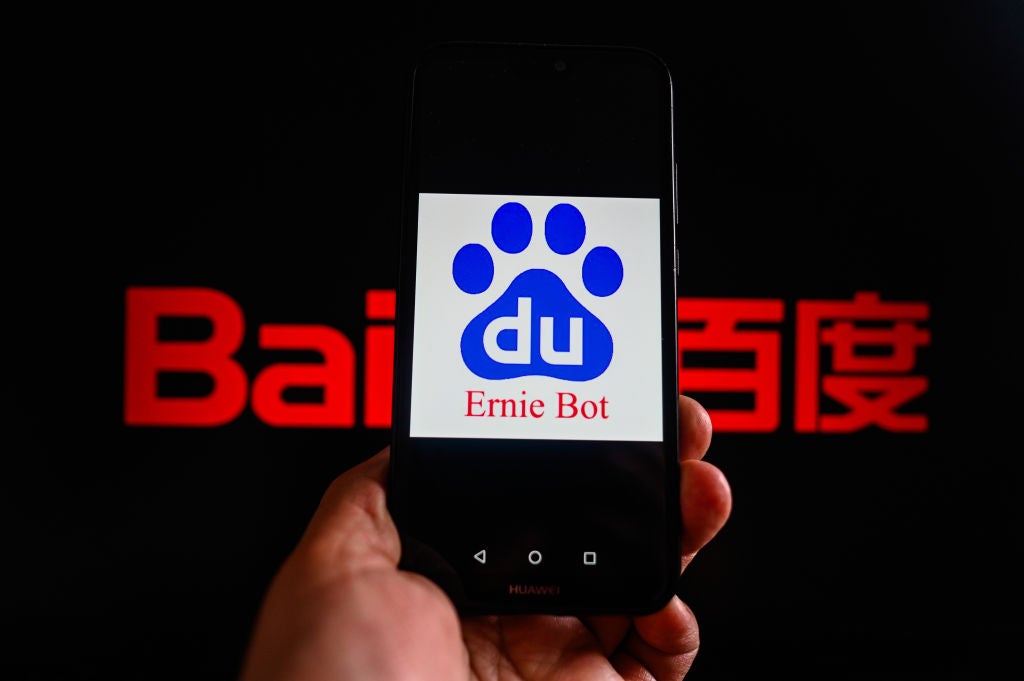
Chinese multinational technology company Baidu launched an upgraded version of its AI model, Ernie 4.0 Turbo, on Friday (28 June) as the company seeks to take the lead in China’s competitive AI race.
The release follows Baidu’s previous launch of Ernie 4 last year, which the company claimed could rival OpenAI’s GPT-4.
Baidu is one of several other companies to release AI chatbots after receiving approval in August 2023 from Beijing. Chinese companies wishing to publish mass-market AI products must submit assessments before receiving regulatory approval.
China, with at least 130 large language models (LLMs), represents a significant portion of the global total, second only to the US.
In March, it was reported that Apple had held initial talks with Chinese tech giant Baidu about using the company’s GenAI in its devices in China.
The news comes after Apple is reportedly in talks to deploy Alphabet-owned Google‘s Gemini AI models on every iPhone.
Investors have previously voiced concerns about Apple’s stance in the GenAI race, which has been dominated by Microsoft since its partnership with OpenAI.
According to data from research company GlobalData, the US far outpaced China on GenAI patents filed between August 2022 and August 2023. During this period, the US filed 45,253 patents compared with China’s 9,005.
Domestically, Baidu is competing with models released by Tencent, which launched its (LLM) Hunyuan in September 2023, and Alibaba, whose model launched in August 2023.
US restrictions on semiconductor exports to China, in an effort to curb the country’s AI ambitions, have prompted Beijing to launch a new state investment fund that aims to raise $40bn (290.56bn yuan) for its semiconductor chip sector to bolster internal AI development.







